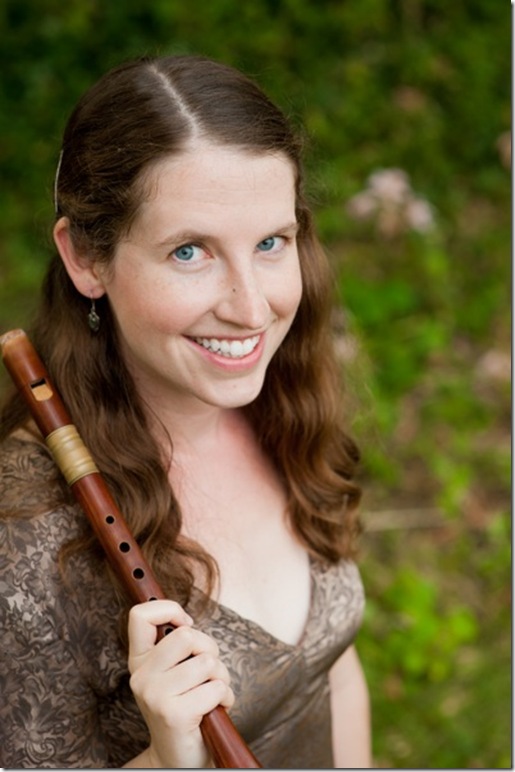It takes a leap of empathy and a sizable amount of scholarship to take an audience back five centuries to a time too remote from our own to be entirely understandable, yet recognizably humanist in a way that we still emulate.
That Seraphic Fire was able to do this with its program of late medieval and early Renaissance music from Spain – in honor of Juan Ponce de León’s discovery of Florida in 1513 – is a tribute to the commitment, curiosity and talent of its singers and organizers, and this week, to the three-piece Renaissance band of lute, recorder and percussion that accompanied them.
Saturday night’s program at All Saints Episcopal Church in Fort Lauderdale, titled The Golden Age of Spain, featured music from the 14th to the 16th centuries, a good deal of it religious music by the major composers the time of Ferdinand and Isabella, and also a healthy selection of songs of love, chivalry, Marian adoration and even insects.
The intermission-less concert, which lasted a little over an hour, was divided into five sections, beginning with liturgical works by Francisco de Peñalosa and Juan de Antxieta (Anchieta), plus some anonymous pieces. From the first work, the Kyrie from Peñalosa’s Missa el Ojo, the sound for which Seraphic Fire has been celebrated over the past 11 seasons was in gratifying evidence: Smooth and accurate, rich and pretty, and led by director and founder Patrick Dupré Quigley in unsentimental but sensitive fashion.
The three pieces from Peñalosa’s mass made a vivid contrast with the music of Antxieta, who was 20 years older, but whose style, as evidenced in the starkly beautiful Domine Jesu Christe, was considerably more primitive. Two of the anonymous songs, Dios te salve Cruz preciosa and Alta Trinidad beata, were even more direct and songful, and in the Dios te salve there was tasteful accompaniment from lutenist John Lenti, recorder player Anne Timberlake, and percussionist Rex Benincasa.
Five other anonymous songs, three from the Llibre Vermell de Montserrat, compiled in 1399, followed. All three ― Stella splendens, Imperayritz de la cuidad joyosa, Mariam Matrem ― which are popular selections in the ancient music concert catalog, had a rough-and-ready kind of vigor that suited the music and also brought its more-distant sound world into sharp focus.
A lovely, tender version of Josquin’s Mille regretz, paired with his charming El grillo, followed, and then three solo songs to lute accompaniment, two by Luys de Milan and one an anonymous setting of Queen Dido’s farewell. Lenti was splendid in this music, playing with the freedom and quiet dazzle that must have accompanied these songs when they were new. Tenor Vincent Davies’ has an unusual but affecting pleading quality to his voice that made for a most memorable Romance de Moriana, while tenor Brad Diamond’s Durandarte, Durandarte was firm and clear, changing color when the knight Durandarte confronted his lady love with accusations of infidelity. Mezzo Lexa Ferrill sang the Dulces exuviae with quietness throughout that was very effective, and helped to take focus away from her very intense vibrato.
The final set, which featured several songs by the very fine Salamancan composer and poet Juan del Encina, was shorter than billed, with three of the songs unperformed (including Encina’s simple and gorgeous Señora de hermosura), but the singers performed with obvious joy and excitement that communicated itself strongly. If some of the entrances in the lower voices were not spot-on from time to time, it didn’t diminish the general air of celebration.
The biggest crowd-pleaser of the night came during this section, and from recordist Timberlake, who led an instrumental version of one of the songs that sounded like nothing so much as a 16th-century surf-music jam, with Timberlake skirling out seemingly endless streams of rapid notes over stop-time lute chords and elaborate drum work. On and on she went, driving and driven by her excellent partners in ancient-music party planning. It was hot, it was hilarious, and it sent the large audience at All Saints into head-bobbing, foot-tapping madness, followed by lusty, well-deserved bravos and cheers.
This was another fine Seraphic Fire outing, and one that put to rest any idea that scholarship means caution, timidity and an excess of dust in the lungs. It succeeded in its purpose: to bring the musical culture of the time of Ponce de Leon not just back to life, but vividly alive.
Seraphic Fire performs this concert again at 4 p.m. today at Miami Beach Community Church in Miami Beach. Tickets are $38. Call 305-285-9060 or visit www.seraphicfire.org.
